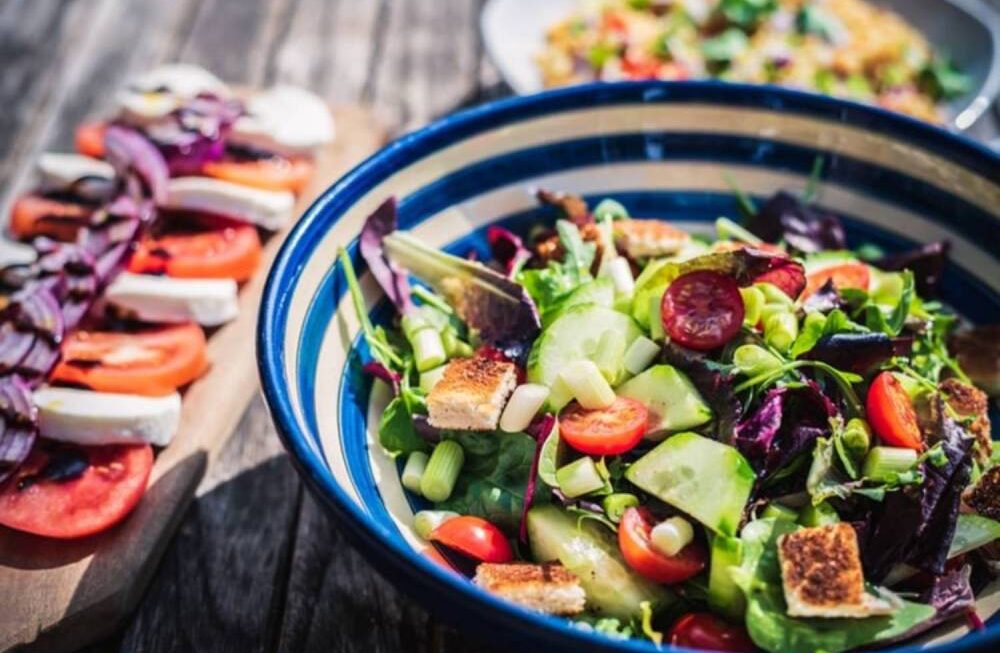Compulsive Overeating: For many people, snacking is the most reliable way to cope with negative emotions and how to change this pattern of behavior without subjecting yourself to strict control and self-criticism.
The emergence of food addiction can have several causes:
- Low self-regulation of the satiety-hunger balance.
- An acquired way of coping with life situations.
- Physiological characteristics of the body.
- Habits formed in childhood.
- Additional meaning carried by food. You associate food with something pleasant, like gambling after creating your Woo Casino login or chatting with friends.
Snacking affects the emotional state of different people in different ways. It can be a way of “escaping” from difficult emotions, a calmness, an opportunity to relax and have fun. At the same time, for others, food is just food. It does not carry any additional emotional load.
Commonly, eating becomes a universal and affordable way to reduce anxiety, even though the person may not realize it directly. He simply feels good about the food he eats. In such cases, it’s necessary to examine in detail what or with whom the anxiety is connected. Often it’s a loss of emotional connection or the impossibility of this connection with a loved one.
The trigger may be an event or subjective interpretation of an event that is closely connected with the cause of anxiety – for example, no call from a loved one, loneliness, boredom, and so on.
Most often the tendency to overeating is formed during life, if “to eat to feel better and more relaxed” becomes the basic or only way of responding to a stressful situation.
Eating disorders have long been considered a predominantly female disease. However, recent data show that 20-30% of people with eating disorders are men. Women are more likely to monitor their eating behavior, try to control it, and notice compulsive overeating. Men are less likely than women to follow a restrictive diet. They may see their compulsive overeating as a normal reaction to stress not worth noticing.
Besides, women are more likely to seek help and talk about their problems, while among men it may be considered a sign of weakness.
The Difference Between Hunger and the Desire to “Eat” Stress
The desire to “eat” emotions is often not accompanied by real hunger. The latter can be satisfied with food, but emotional overeating is difficult to control, since one wants more and more.
During such a period, a person eats more than is necessary for satiation, and after a while, he feels uncomfortable. Until this signal of the body he cannot stop. Often emotionally overeating people eat quickly, as if they are afraid someone takes the food away, and alone. Then they feel guilty and disgusted with themselves.
Emotional overeating can be different: for example, a craving specifically for sweets, fast food, or any other food. The key sign: there is no hunger, but a desire to experience a difficult emotion. It isn’t uncommon for people with eating disorders to have impaired perception. Hunger may not be felt at all until the body begins to weaken, or it may be felt when the body does not need the food.
What Are the Dangers of Compulsive Overeating?
Compulsive overeating is a mental disorder. Unproductive ways of coping with stress prevent a person from adapting to difficult situations, making life difficult. It is not uncommon for people with eating disorders to have or develop anxiety disorders and depression.
In terms of the physiological impact on the body, the same symptoms as with normal overeating can be identified: bloating, pain, heartburn, nausea. Long-term problems also arise: skin deterioration, weight gain, risk of developing various cardiovascular diseases, and diabetes mellitus. It’s important to note that the consequences are influenced by the frequency of compulsive overeating, metabolic patterns, and existing predispositions. Most people with compulsive overeating have a conditionally normal weight.
How to Identify the Source of Negative Emotions
Doing it yourself is quite difficult. You can try to ask yourself the following questions in times of worry:
- What is happening to me now?
- What am I feeling?
- How can I help myself?
- What do I need right now?
- What do I really want right now?
- What are some ways to get what I want?
- What can I do in this situation that I can’t really change?
If you find it difficult to understand your feelings, start writing down situations in which you overeat: have an argument with a partner, receive criticism from your boss, think about the mountain of things to do tomorrow, and so on. After a while, look at the notes and try to find patterns.
You can tell your loved one about your worries and emotions. Their causes are often better seen when you start talking about them.
Self-help Techniques for Dealing With Eating Disorders
The harder you try to control your eating behavior, the higher your risk of developing the disorder.
Imagine that stress is a wound and compulsive overeating is an anesthetic. It reduces pain, but it works for a short time, has side effects, and doesn’t address the cause. But if you leave just an open wound – there is a risk of getting an infection, it will only get worse. It is definitely better to choose a healing ointment or the right medicine for you after a medical examination.
Start keeping track of situations where you feel fear or anxiety and feel the urge to heal. Then try other ways to cope with stress: talk to a loved one about what’s going on, do something you enjoy, take your mind off other things, or deal with the source of the anxiety if possible. The more productive methods you have, the less you will “binge” on negative emotions.
You can keep track of the days when you overeat. For example, using a habit tracker. Careful attitude is important: don’t berate yourself when you can’t handle the feelings and eat the cake alone.
Sometimes you can cope with compulsive overeating on your own, but even if the help of a specialist is not necessary, it will help you more quickly and safely come to the desired result.
Eating control can have a negative impact on the course of an eating disorder. So, each person needs an individual approach. Consultation with a therapist, a medical examination, and the development of an individualized plan are necessary. For example, a person with a predisposition to diabetes and a patient with other hormonal problems may have different eating plans.
In the early stages of working with compulsive overeating, you can always have healthy snacks that you enjoy on hand. You won’t stop “eating” stress in one day. Overeating can happen for a while, and that’s okay. But you can choose foods that will do less harm to your body.
Try exploring your ways of having pleasurable emotions. Can anything besides food make you feel good? Or is food the only source of pleasure? There are always healthier alternatives: sports, socializing, meditation and relaxation, and having a good time. But if your hand reaches for ice cream or chocolate, stop for a second and ask yourself: “What’s happening to me right now?”
When to See a Doctor
Visiting a doctor is necessary if overeating becomes uncontrollable, that is, a lot can be eaten in a short time, and the anxiety associated with overeating is off the charts.
It’s likely that you will be prescribed medication to relieve anxiety, and will be referred to psychotherapy. The methods of treatment will depend on the approach in which the specialist works.
For example, within the framework of cognitive-behavioral psychotherapy you will be offered to monitor situations, your thoughts and emotions, when there is a desire to “eat” stress. The therapist will help you to look at situations from different angles, change your perception of them and learn to find other ways to relax besides eating.
The Gestalt approach has a method that views emotional overeating as a consequence of a process of change in a person’s relationship with another significant other. The work is built around restoring this process, and it takes place within the person’s perception of this relationship.
The result will depend on the kind of request you make to the therapist: sometimes you just want to change patterns of behavior, and sometimes you want to get to the root of the problem and solve it. It all depends on you and your agreements. The duration also depends on the request and the severity of the condition. Long-term therapy brings the most stable and reliable results.
Preventing Emotional Overeating
Most aspects of eating behavior develop as you grow up, and many different factors influence it. Therefore, the best prevention of compulsive overeating is a healthy relationship with food and your own body from childhood.
Understand what foods you like and what foods you don’t like. Listen to your hunger and satisfy it as much as your body needs, without forcing yourself to eat more or less. Never use food as a reward.
The second part of prevention is formation of productive ways of coping with stress. There are many of them, and something is suitable for each situation: search for social support, planning, acceptance, positive reformulation. and so on.
Habits that help you cope with stress better than food:
- Sharing with a loved one what’s going on with you.
- Communicating and improving the quality of communication.
- Sports and other activities.
- Meditation and relaxation.
Think carefully about what helps you maintain your inner balance, or see a professional if you can’t solve the problem yourself.
Also Read: How To Choose The Best Polyester T-Shirt For Women?




